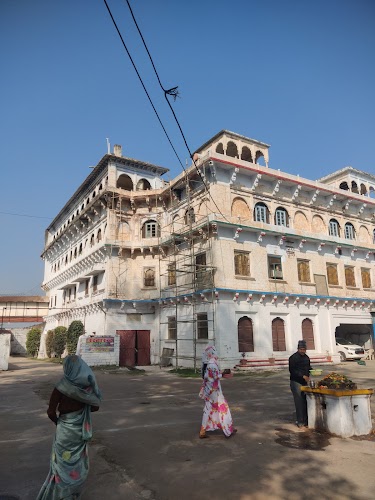
Baghel Museum
Rewa, India
- Admire the architecture of Rewa Fort.
- Explore historical artifacts and royal collections.
- Learn about the Baghel dynasty's history.
- Photograph the historical displays.
- See the stuffed white tiger exhibit.
Known for:
Description:
The Baghel Museum in Rewa offers a fascinating glimpse into the royal heritage and cultural history of the Baghel dynasty. Housed within the magnificent Rewa Fort, the museum showcases a diverse collection of artifacts, including weaponry, costumes, jewelry, sculptures, and paintings. Visitors can admire the opulence of the royal court and gain insights into the lives of the Baghel kings and queens. The museum provides a captivating journey through time, highlighting the artistic, social, and political aspects of the region's past. Don't miss the stuffed white tiger, a symbol of Rewa's unique natural history. The well-maintained exhibits and informative displays make it a must-visit destination for history enthusiasts and anyone interested in exploring the rich cultural tapestry of Madhya Pradesh.
History:
The Baghel Museum's collection primarily focuses on preserving and showcasing the legacy of the Baghel dynasty, who ruled over the Rewa region for centuries. The museum was established to safeguard the royal family's possessions and make them accessible to the public. The Rewa Fort itself has a rich history, witnessing various political and social changes over the years. The museum's establishment within the fort aimed to create a comprehensive historical experience for visitors, connecting the tangible artifacts with the fort's architectural grandeur. The museum has expanded its collection over time through donations and acquisitions, further enriching its representation of the Baghel dynasty and the surrounding region's cultural heritage. The stuffed white tiger is particularly significant, as the first white tiger was discovered in Rewa.